Ideally the following words would be spoken. You would close your eyes, turn off the voices in your head, and just listen as the words are read to you. When was the last time someone read aloud to you? When was the first time? Classic stories, no doubt. The cat in the hat, that rascal. I do not like green eggs and ham, I do not like them, Sam-I-am, then or now. Famous poems, too, about owls and pussycats (who were married by the turkey who lives on the hill, lest we forget) and other creatures having great adventures.
Being read to, often at naptime or bedtime, slowing down, easing into sleep. Reading aloud, a pleasure we rediscover when we become parents or uncles or aunties. But also, if we are very lucky, a pleasure that we share with other adults. It’s one of the overlooked luxuries in life and priceless. You might pay someone to read to you, if you had no friends, but how sad that would be. Reading aloud, and being read to, is a joyful time for those who love stories and poems, who love words.
Close your eyes and listen to the words. We read slowly and listen slowly, savoring each gourmet bite. No fast food here, please. Tonight we’re reading Raymond Chandler, here the opening of “Red Wind”:
Being read to, often at naptime or bedtime, slowing down, easing into sleep. Reading aloud, a pleasure we rediscover when we become parents or uncles or aunties. But also, if we are very lucky, a pleasure that we share with other adults. It’s one of the overlooked luxuries in life and priceless. You might pay someone to read to you, if you had no friends, but how sad that would be. Reading aloud, and being read to, is a joyful time for those who love stories and poems, who love words.
Close your eyes and listen to the words. We read slowly and listen slowly, savoring each gourmet bite. No fast food here, please. Tonight we’re reading Raymond Chandler, here the opening of “Red Wind”:
There was a desert wind blowing that night. It was one of those
hot dry Santa Anas that come down through the mountain
passes and curl your hair and make your nerves jump and your
skin itch. On nights like that every booze party ends in a fight.
Meek little wives feel the edge of the carving knife and study
their husbands’ necks. Anything can happen.
Now that’s an opening. Maybe not a good bedtime story though. It was Ross Macdonald who said that “Chandler wrote like a slumming angel and invested the sun-blinded streets of Los Angeles with a romantic presence.” Here’s another passage from Chandler, from Farewell, My Lovely:
The smell of sage drifted up from a canyon and made me
think of a dead man and a moonless sky. Straggly stucco
houses were molded flat to the side of the hill, like bas-reliefs.
Then there were no more houses, just the still dark foothills
with an early star or two above them, and the concrete ribbon
of road and a sheer drop on one side into a tangle of scrub
oak and manzanita where sometimes you can hear the call of
the quails if you stop and keep still and wait. On the other side
of the road was a raw clay bank at the edge of which a few
unbeatable wild flowers hung on like naughty children that
won’t go to bed.
Don’t stop to comment, just read. We’re not critiquing. Read. Listen. Be the words. If you like Chandler, you’ll probably like James Lee Burke. Here’s the opening of Last Car to Elysian Fields:
The first week after Labor Day, after a summer of hot
wind and drought that left the cane fields dust blown and
spiderwebbed with cracks, rain showers once more
danced across the wetlands, the temperature dropped
twenty degrees, and the sky turned the hard flawless blue
of an inverted ceramic bowl. In the evenings I sat on the
back steps of a rented shotgun house on Bayou Teche
and watched the boats passing in the twilight and listened
to the Sunset Limited blowing down the line. Just as the
light went out of the sky the moon would rise like an orange
planet above the oaks that covered my rented backyard,
then I would go inside and fix supper for myself and eat
alone at the kitchen table.
We read aloud before falling asleep, then let the words and images work their magic in our heads, coloring our dreams. Then, perhaps, if we are very lucky, the rhythms of Chandler and Burke and Dr. Seuss and Edward Lear will stay on after we awake and help shape our own words and sentences at the keyboard. Maybe the cat in the hat will teach us all we need to know about conflict. Perhaps the owl and the pussycat will teach us profound lessons in romance. If not, then so be it. The words await us anyway. Like a child who begs for a favorite story again and again, we will return.
And hand in hand, on the edge of the sand,
They danced by the light of the moon,
The moon,
The moon,
They danced by the light of the moon.



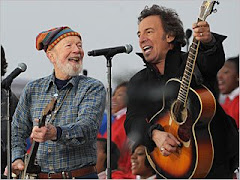

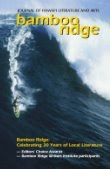
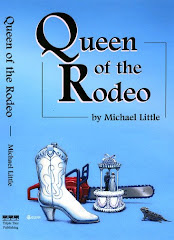

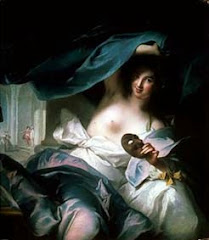


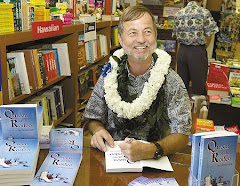

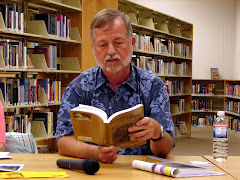
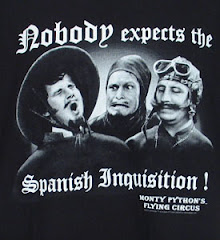
No comments:
Post a Comment